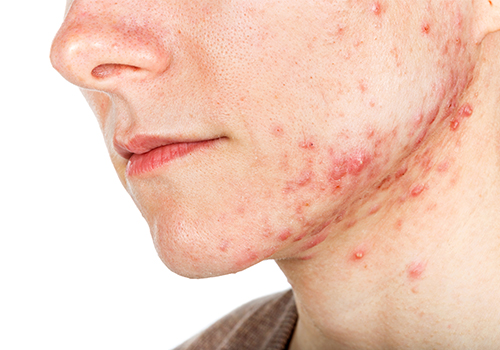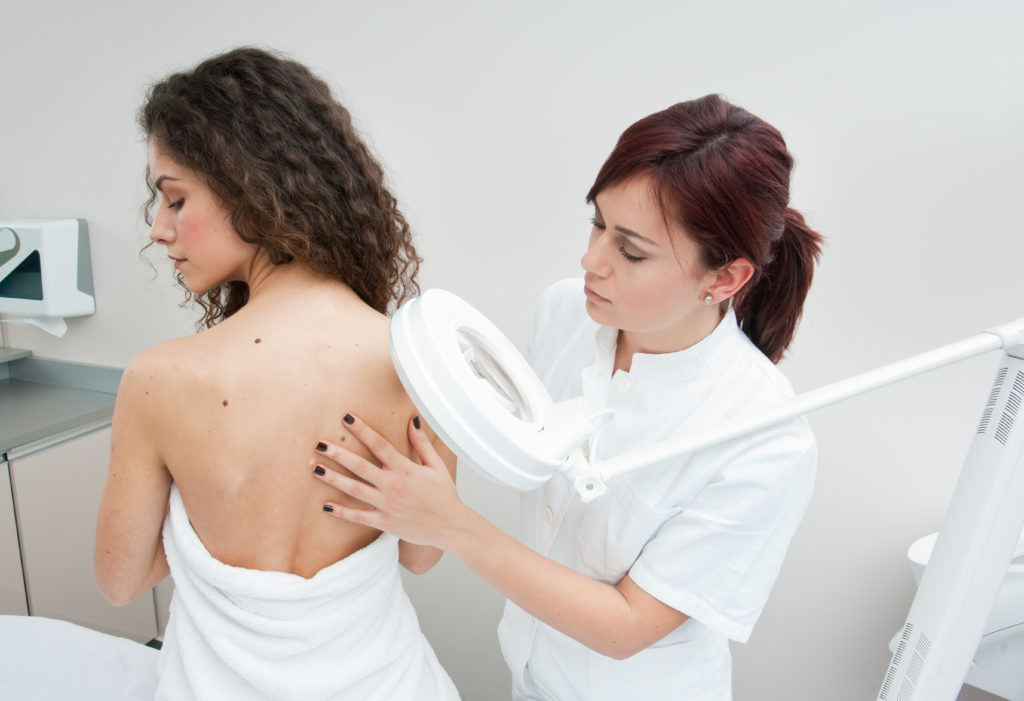If you have skin issues, there are a few different people you can see for treatment. In some cases, your primary care physician can help you, but for others, you should see a dermatologist. Dermatologists can treat both simple and complex skin problems ranging from acne to skin cancer. It’s important to know when you should see a dermatologist, as this can ensure that you obtain the treatment you need. If your primary care physician can’t treat your skin issue, they’ll likely refer you to a dermatologist. However, there are cases where it is faster and better for you to go right to a dermatologist.
Here is what you need to know about some of the times when you should see a dermatologist. While this information may be useful, if you have any skin concerns, it is best to talk to your dermatologist in order to obtain a diagnosis and treatment options.

#1. Your Acne Isn’t Responding To Treatment
Some acne can be normal from time to time, as many women notice pimples around their time of the month. However, if you have persistent or severe acne that isn’t responding to over-the-counter treatments, this is something that you should see a dermatologist about.
Your dermatologist can determine the cause of your acne, whether it be within your skincare routine or the result of an imbalance or something else. They can prescribe treatments, such as medications and creams, that can reduce your pain and inflammation and help you to heal. Your dermatologist can also help with scarring, preventing it and minimizing it.
In some cases, what looks like acne is actually another skin condition, such as rosacea, which would be why your acne treatments aren’t working. Your dermatologist can diagnose the skin issue and ensure that you receive the proper treatment.
#2. Your Skin Is Persistently Flushed
It’s normal for us to get flushed if we’re embarrassed or if we just exerted ourselves. However, if you’re persistently flushed, especially around your nose and cheeks, you should see a dermatologist. This constant blush that’s accompanied by acne-like spots could be rosacea. Rosacea is not a skin condition that currently has a cure, but there are things that you can do to both treat it and manage it. Your dermatologist can diagnose the cause of your redness and determine a course of action best suited to you.
#3. You Have A New Or Changing Mole

You always want to keep an eye on moles, as they can be a sign of skin cancer. Moles can be benign, but if you have a new mole or one that is changing in size, shape, and/or color, you should see a dermatologist. Your dermatologist will be able to determine whether or not your mole is cause for concern. Having skin growths such as moles looked at can end up saving your life.
Moles aren’t exclusive to white people. People with any color of skin should see a dermatologist to have moles and skin growths checked out, as skin cancer can happen to people of all races. If you have existing moles, even if you’ve had them all your life, it’s a good idea to have them checked regularly, such as during a yearly appointment, in order to ensure that they are still benign.
#4. You Have A Rash
Rashes can be caused by all sorts of different things, from eczema to infection to allergic reactions. If you have a rash that burns, itches, or is otherwise irritating, you should see a dermatologist. Over-the-counter creams and treatments may help, but a dermatologist will be able to diagnose the underlying cause and ensure that you receive proper treatment.
Depending on the cause of your rash, it can worsen if it is not treated quickly enough. If you have circular rashes with raised borders, this could be ringworm. Some skin rashes need more attention than others. You should see a dermatologist in order to have the cause of your rash diagnosed so that you can find relief.
#5. You’re Experiencing Hair Loss

A lot of people don’t realize that you can see a dermatologist for hair loss. It’s normal to shed some hair each day. However, if your hair is thinning or you’re getting bald patches, this could be a sign of a serious condition. Your dermatologist can diagnose the cause of your hair loss and provide you with medication and other solutions that can help.
Do You Need To See A Dermatologist?
These are but 5 of the times in which you’ll want to consult with a dermatologist. Allen-Taintor Dermatology can help you with your skin concerns. We can diagnose and treat your issues, as well as screen your skin for signs of skin cancer. Contact us today to schedule an appointment and let us help you keep your skin healthy.
